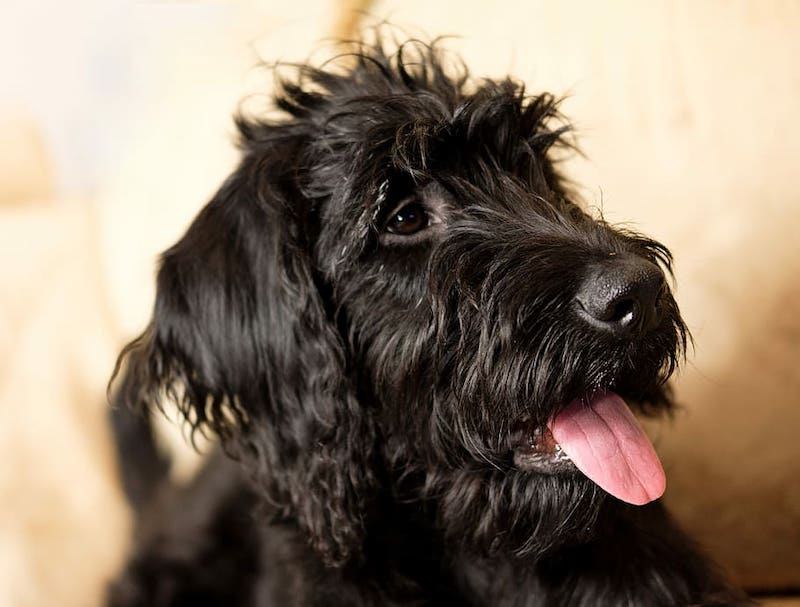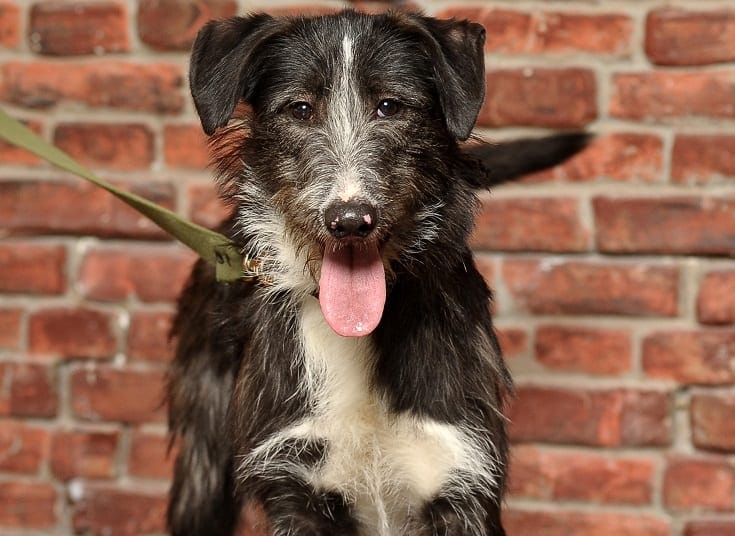Basset Fauve de Bretagne | Pictures, Traits & Facts

Updated on
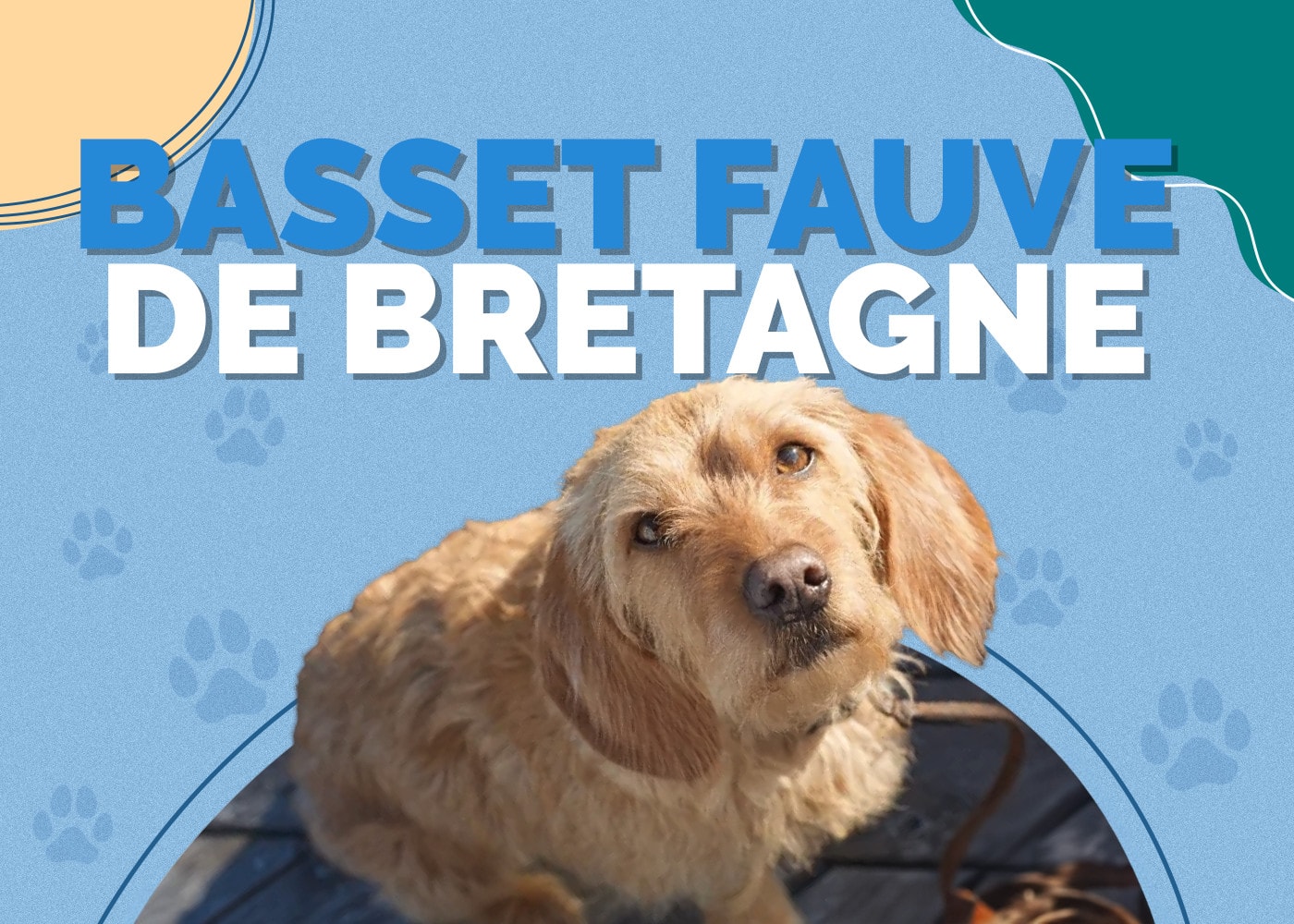
| Height: | 13–15 inches |
| Weight: | 36–40 pounds |
| Lifespan: | 11–14 years |
| Colors: | Fawn |
| Suitable for: | Families with children and elderly, small homes, homes with a yard |
| Temperament: | Smart, determined, and courageous |
The Basset Fauve de Bretagne is a purebred with a small, stocky body. They have a long head with a black or brown nose and brown eyes. Their ears are floppy, and they have a sickle-shaped tail. They’re only available in the color fawn, but they can range in hue from a wheat color to red.
The Basset Fauve de Bretagne is intelligent and capable of following commands and learning new tricks. they excel at hunting and won the French Cup multiple times. They have exceptional hunting skills and are tireless in action. If they pick up a scent, they will likely follow it until its conclusion, no matter what else they might be doing.
 Basset Fauve de Bretagne Puppies
Basset Fauve de Bretagne Puppies

The Basset Fauve de Bretagne is a rare breed, and you should be prepared to do lots of searching and be on a waitlist for some time. You can always ask your local shelter for a Basset Hound mix, which will save you money and change a puppy’s life.
Basset Fauve de Bretagne dogs tend to be very energetic and playful. Be ready to provide enough exercise and mental stimulation to avoid boredom. They need space to run and play, and if they don’t get the exercise they need, you might find them chewing on furniture.
Be careful if you have small animals in your home since the Basset Fauve de Bretagne was bred to hunt small animals. Early socialization and training are essential for your dog to grow into a happy dog.
3 Little-Known Facts About the Basset Fauve de Bretagne
1. The Basset Fauve de Bretagne Originally Came from France.
2. The Basset Fauve de Bretagne Didn’t Arrive in America until 2001.
3. Black and White Patches on Their Coat Can Reduce Their Ability to Stay Hidden During the Hunt.
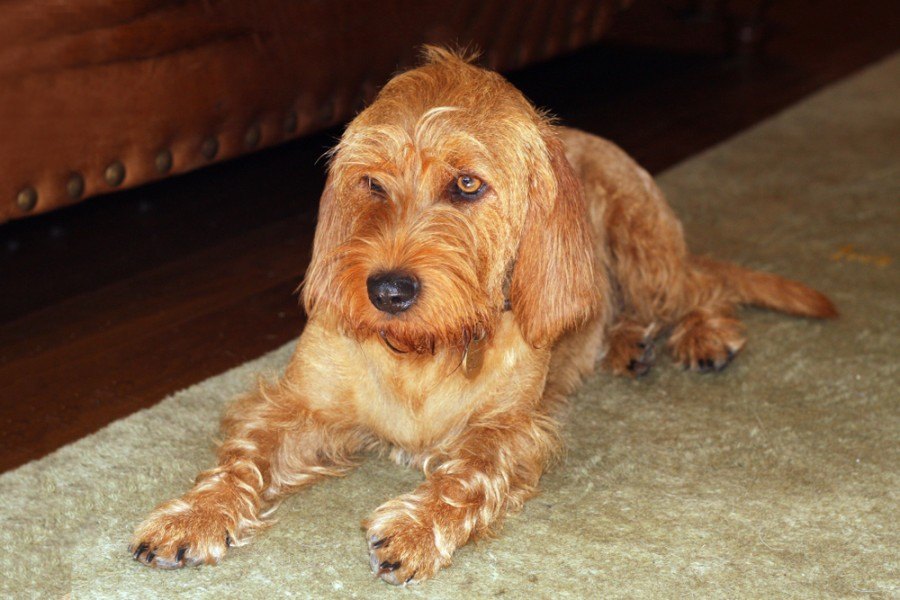
Temperament & Intelligence of the Basset Fauve de Bretagne 🧠
The Basset Fauve de Bretagne is a focused, relentless hunter once they obtain a scent. They’re also friendly and a natural companion for children because they’re not so large that they frighten or knock them over but not so small they can be injured.
The Basset Fauve de Bretagne is also very intelligent, can learn new tricks very quickly, and are good at getting what they want, but many owners mention that they are challenging to housebreak. They can be stubborn at times or even run off when they pick up a scent.
Are These Dogs Good for Families? 🏡
The Basset Fauve de Bretagne is very friendly and curious, and they make great family pets. They like to play with children and watch over the house in the evening when everyone is asleep. You can train them to get the newspaper and slippers, so they are also good companions for the elderly, and they only bark when there is an intruder in the yard so they won’t bother the neighbors.
Does This Breed Get Along with Other Pets? 🐶 😽
The Basset Fauve de Bretagne hunts small animals, so you must socialize them at a young age to prevent them from chasing your other pets. After they are properly socialized, they get along very well with other pets, and there is no cause for concern. They may occasionally chase your cats around, but it’s purely for fun, and they won’t harm them.
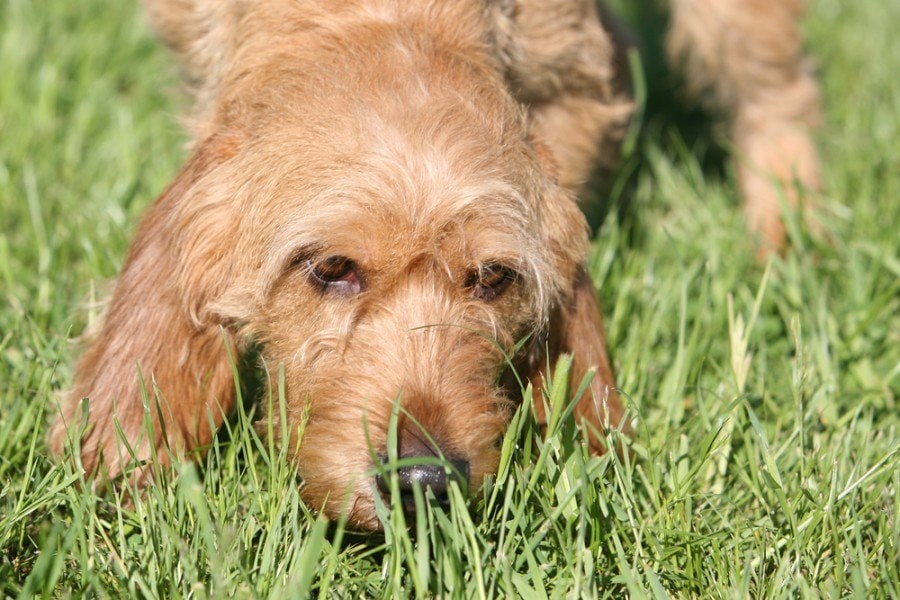
 Things to Know When Owning a Basset Fauve de Bretagne
Things to Know When Owning a Basset Fauve de Bretagne
Here are some things every Basset Fauve de Bretagne owner should consider.
Food and Diet Requirements 🦴
The Basset Fauve de Bretagne is a small but stocky dog that can eat a surprising amount of food, which can lead to obesity without carefully controlled portions. We recommend high-quality dry dog food because dry kibble helps to clean your pet’s teeth while providing a complete and balanced meal for your pet.
Avoid foods with unknown ingredients, such as harmful preservatives like BHA. Your dog has a very sensitive digestive system, and even artificial coloring can cause an allergic reaction in some dogs.
We recommend a brand formulated for small breeds to help them get the extra nutrition they require, especially during the puppy years. The kibble for small dogs is also better suited to fit in their mouth and clean teeth.
Exercise 🐕
The Basset Fauve de Bretagne is a tireless hunter with boundless energy at their disposal. Not providing a way to expend their energy can result in chewed furniture or rugs, and they tend to misbehave in other ways.
Expect to spend 45 minutes to an hour a day engaging your Basset Fauve de Bretagne in exercise to keep them fit and help burn off excess energy. They will require mental and physical stimulation, and games that work their mind are essential.
Training 🦮
The Basset Fauve de Bretagne likes to do tricks for food, which makes them willing and easy to train. They often remember the last training session and start performing tricks spontaneously when they want a treat or attention.
They also have a stubborn side, but you can overcome it with consistent training. If they pick up a strange scent while training, they may wander off searching for the origin.

Grooming ✂️
Basset Fauve de Bretagnes require a moderate amount of grooming that primarily consists of regular brushing to keep the coat looking nice and tangle-free. Bathing is unnecessary unless they get into something or develop a musty smell.
Daily tooth brushing will prevent gum disease and bad breath, and you will also need to trim their nails regularly to make it easier for them to walk and prevent scratches.
Health and Conditions ❤️
The Basset Fauve de Bretagne is a healthy breed with a long lifespan, but we’ll look at a few problems common to the breed in this section.
- Ear Infections
- Cataracts
- Kidney Disease
- Corneal Ulcers
Ear Infections
Ear infections are common in dogs with floppy ears like the Basset Fauve de Bretagne. The ears hold moisture, which can grow bacteria, leading to infection. The signs of an ear infection include shaking their head and scratching.
Their ears can also become red and inflamed. Your pet will require an examination to determine what type of infection is present and the best course of treatment. Prevention is the best treatment, and keeping your dog’s ears clean and dry is vital to preventing and detecting infections early.
Cataracts
Cataracts are an eye condition that causes the lens to become foggy because of water and protein changes in the eye. The cloudy eye will prevent light from entering, which can lead to blurred vision and eventual blindness. In some cases, other diseases like diabetes cause cataracts, and sometimes it’s a result of genetics. Early detection is critical to managing the disease.
Kidney Disease
Kidney disease is a rare but severe condition that causes a decline in the kidney’s function. An Improper diet, certain medications, and ingesting antifreeze are all known to cause kidney disease, and sometimes, it occurs naturally as a result of old age. Vomiting, weight loss, and a change in the amount of fluids your pet drinks are common signs of kidney disease and will require a trip to the vet.
Corneal Ulcers
A corneal ulcer is a wound on the surface of the cornea. The cornea has three layers, and the seriousness of the condition is dependent on how many layers are affected. Abrasions affecting only the top layer are not considered serious and are usually treatable.
Abrasions affecting more layers are a more significant problem and can become a long-term problem. The most common causes of a corneal ulcer are rough play with other animals and running through dense brush.
 Male vs Female
Male vs Female
There is very little difference between the male and female Basset Fauve de Bretagne. Both are generally the same size and weight and have the same temperament.
 Summary
Summary
The Basset Fauve de Bretagne is a great family dog that may seem stubborn and independent at times but makes a great companion for the entire family. They are tireless trackers and love to perform for food. They may chase and bark at small animals in the yard but generally get along with other house pets, especially if socialized early. They are also relatively inexpensive for a pure breed.
We hope we have helped you find your next pet. If you have never heard of or learned something new about the Basset Fauve de Bretagne, please share this post on Facebook and Twitter.
Featured Image Credit: Bokehboo Studios, Shutterstock
 Basset Fauve de Bretagne Puppies
Basset Fauve de Bretagne Puppies Things to Know When Owning a Basset Fauve de Bretagne
Things to Know When Owning a Basset Fauve de Bretagne Male vs Female
Male vs Female